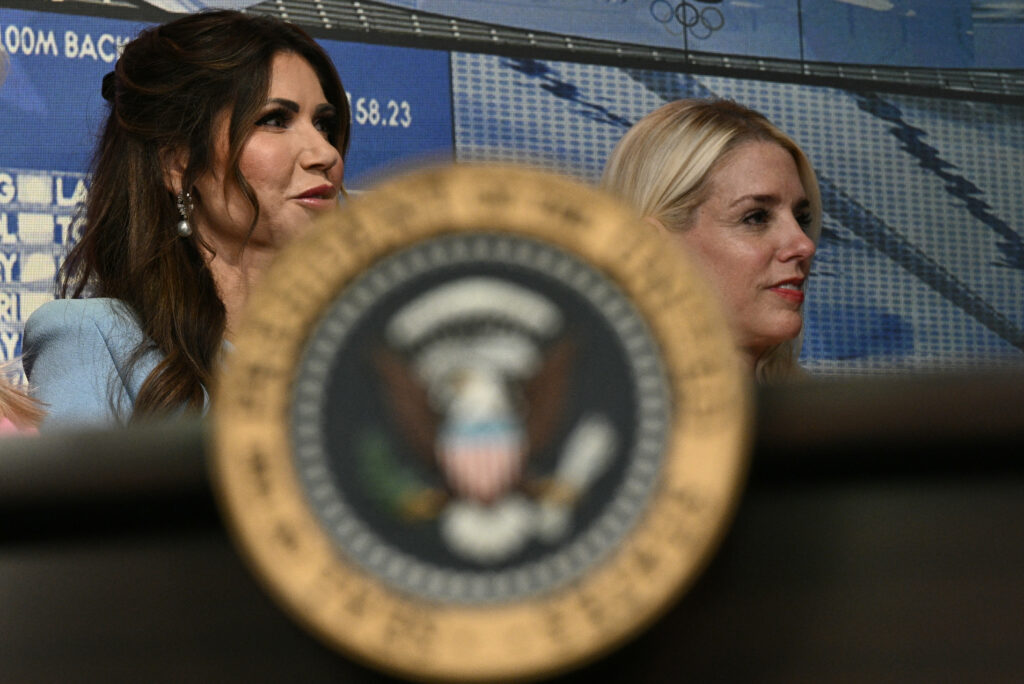Lawsuit Challenging Trump’s Massive Voter Purge Database Hits Snags

A lawsuit aiming to block the Trump administration from using a citizenship verification system to purge state voter rolls was left reeling on the ropes after taking a verbal beating from a federal judge Monday.
The League of Women Voters (LWV), along with LWV state groups, the Electronic Privacy Information Center (EPIC), and five unnamed voters, are suing the federal government, claiming that the Department of Homeland Security’s (DHS) overhaul of the Systematic Alien Verification for Entitlements (SAVE) to pull data from the Social Security Administration (SSA) and Department of Justice (DOJ) violates the Privacy Act’s prohibitions against “pooling Americans’ sensitive information into national data banks,” without proper notice to the public and Congress.
A major part of DHS’s goal with the overhaul is to allow state and local election officials to check the citizenship status of registered voters.
Get updates straight to your inbox — for free
Over 450,000 readers rely on our daily and weekly newsletters for the latest in voting, elections and democracy.
The lawsuit, filed in Washington D.C.’s district court, also alleges that the agencies failed to properly provide notice of these changes in accordance with the Administrative Procedures Act (APA).
Even though Judge Sparkle Sooknanan thought the plaintiffs “have a strong case on the merits that the government disregarded statutory requirements,” she took the plaintiffs to task for a “muddled” filing. At the end of the hearing, Sooknanan ordered supplemental briefing, giving plaintiffs until midnight Wednesday to bolster their argument and the government until Monday to respond.
“I’ve got to say, I’ve seen many, many emergency relief motions in my time on this court, and I have no idea what you’re asking me,” Sooknanan said to the plaintiffs’ counsel Monday.
President Donald Trump signed an executive order in March directing DHS to expand the SAVE program for use in checking the citizenship of registered voters, incorporate Social Security data, and make it free for state election officials to use. Since then, the DOJ has said it has taken voter registration roll data it has collected from some state election officials and shared it with DHS for use with SAVE. They did all this without providing public notice and notice to Congress as required by the Privacy Act and the APA.
But Sooknanan, an appointee of President Joe Biden who joined the bench in January, seemed hesitant to grant the sweeping relief plaintiffs sought, which is essentially to block state and local election officials from using SAVE. Sooknanan noted the bureaucratic nature of the alleged wrongdoing, and the lack of proof that voters are actually being harmed already by it.
Sooknanan took particular issue with two elements of the complaint. First, she grilled the plaintiffs’ attorney, Nikhel Sus, on standing, noting that the plaintiffs were seeking a preliminary injunction on behalf of a subclass before even okaying the broader class action.
The reason for the complicated pleading, Sus said, was the plaintiffs’ attempt to address the U.S. Supreme Court’s recent ruling in Trump v. CASA, which limited the ability of federal judges to block executive actions throughout the country through nationwide injunctions. Courts have struggled to adapt to the shifting legal landscape left in that decision’s wake.
While Sooknanan later said she was “getting there,” on standing, she added that she was still struggling with the element of irreparable harm. Plaintiffs seeking a preliminary injunction must show that they will suffer an irreparable injury if the court doesn’t immediately suspend the action in question while the lawsuit plays out.
The alleged harm here, Sooknanan said, seemed too hypothetical to justify the injunction. She said plaintiffs had not shown evidence of any eligible voters being improperly removed from registration rolls or investigated for illegal voting.
As the hearing ended, Sus offered to supplement the briefing with recent news reports that states are already using SAVE to purge voters and make criminal referrals, and Sooknanan agreed. On Oct. 20, Texas’ secretary of state announced finding 2,700 potential non-citizens on registration rolls through SAVE.
During oral argument, DOJ attorney Stephen Pezzi said the administration was in the process of posting the System of Records Notices (SORN) notice required under the Privacy Act.
A coalition of government watchdog groups — Democracy Forward*, Citizens for Responsibility and Ethics in Washington and Fair Elections Center — filed the lawsuit on behalf of the plaintiffs.
The State of Texas moved to intervene as a defendant in the case shortly before Tuesday’s hearing. Sooknanan has not yet ruled on their motion.
*Democracy Docket Founder Marc Elias is the chair of the Democracy Forward board.